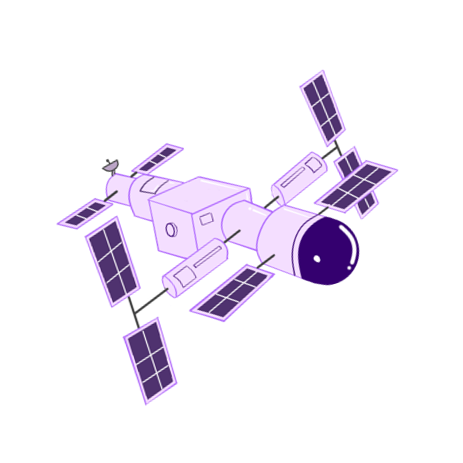At their closest, Earth and Mars are only 54.6 million kilometers apart. Even then, a spacecraft would take 6–9 months to reach Mars with current propulsion. Such long travel makes life support systems critical, as astronauts need reliable food, water, oxygen, and waste recycling to survive safely.
Astronauts face serious nutrition challenges during missions. Limited food supplies can weaken health, energy, and focus. Every meal must be balanced to provide all essential nutrients in an environment where errors can be life-threatening.

Protein is vital in space as microgravity speeds up muscle loss and slows repair. Without enough protein, astronauts quickly lose strength and endurance, putting health and mission performance at risk.

Biomanufacturing with single-cell proteins lets astronauts recycle waste into food. This sustainable method produces protein, vitamins, and amino acids while reducing reliance on costly resupply from Earth.
Our engineered yeast converts urea from astronaut waste into protein-rich biomass. By enhancing amino acid pathways, it provides a renewable and reliable nutrient source for long missions.

Cultured in compact bioreactors, this yeast produces safe protein powders ready for astronaut diets. On-board production reduces storage needs and ensures consistent access to essential nutrition.

Space radiation, including UV light and cosmic rays, can damage DNA and kill microbial cultures. Without protection, biomanufacturing systems would fail, threatening astronaut nutrition on long journeys.
DSUP, a protein from tardigrades, helps prevent DNA damage from ionizing radiation. By adding DSUP to yeast, microbial survival increases, ensuring continuous nutrient production.

Melanin films act as biological sunscreens, shielding bioreactors from harmful UV radiation. These coatings improve yeast resilience, keeping protein production steady even in harsh space conditions.





